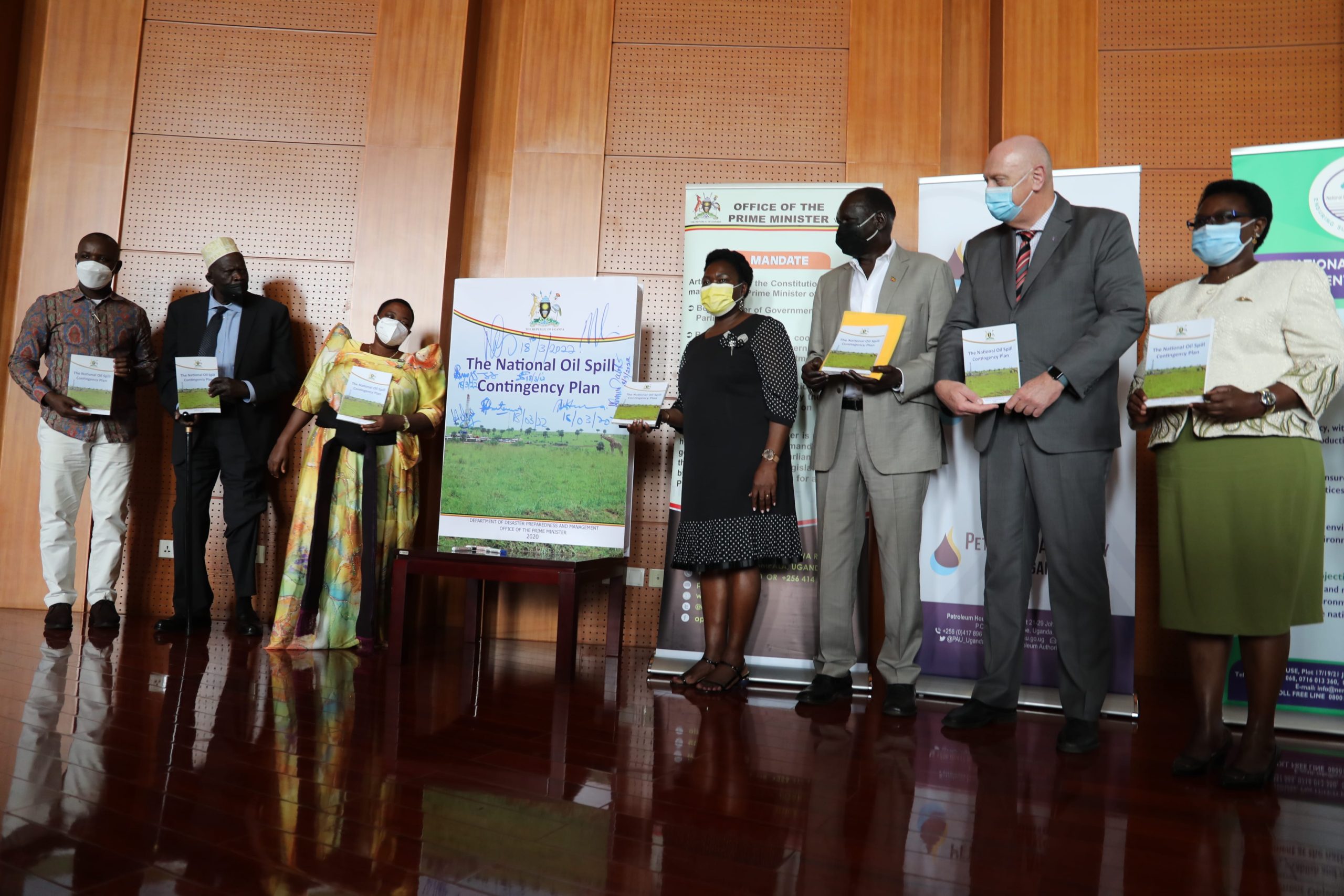
The Rt. Hon. Robinah Nabanjja, the Prime Minister of Uganda has urged entities charged with overseeing the oil and gas operations in the country to widely publicise the National Oil Spill Contingency Plan (NOSCP) that she officially launched on 18th March 2022. The NOSCP is a framework to guide national oil spill preparedness and response in the event of an oil spill.
Rt. Hon. Nabanjja said; “the people in the areas where the oil projects are situated will need to be sensitised on what to do and what not to do incase of an oil spill”. She added that Government has continued to show consistent support to the oil and gas sector by providing a peaceful environment for the investors to operate.
Speaking at the same event, Hon. Ruth Nankabirwa, the Minister of Energy and Mineral Development emphasized the need for support from all players to exploit Uganda’s oil and gas industry to deal with energy poverty.
“NGOs (Non-Governmental Organisations) that thought that the industry will be derailed should now know that we have left no stone unturned to ensure that our biodiversity concerns are well addressed”, she said.
She further added that her Ministry “has worked with other agencies of Government and industry stakeholders to champion the development of several frameworks to support environment management and biodiversity protection during oil and gas activities”.
Mr. Ernest Rubondo, the Executive Director at the Petroleum Authority of Uganda (PAU) re-affirmed the Authority’s commitment as the designated Competent National Authority (CNA) for ensuring the implementation and operability of the NOSCP.
“The Authority has already initiated steps geared towards strengthening regulatory capacity in oil spill management that include equipping oil spill monitoring and incident command centers, facilitating the establishment oil spill response equipment hubs and undertaking specialized training in oil spill management”, said Mr. Rubondo.
Dr. Akankwasa Barirega, the Executive Director at the National Environment Management Authority (NEMA) revealed that oil spill contingency planning is the bedrock for effective preparedness and response to oil spill emergencies.
He said, “the legal framework and the NOSCP establishes an effective and coordinated national oil spill preparedness and response system, including designating responsible institutions and response command structures”.
“In the unlikely event that an oil spill occurs, it is imperative that it is managed well, and our first action should be to contain and control the spill. Thereafter endeavor to respond quickly and in a well-organized manner”, Mr. Akankwasa added.
The legal framework, with hindsight that effective management of oil spills depends on good coordination and collaboration between several entities, requires that the Office of the Prime Minister (OPM), NEMA and the PAU to work closely together on several undertakings aimed at preventing / preparing for / responding to oil spill incidents. This however does not take away the independence of these institutions in the implementation of their core mandates and duties as well as roles provided for in the regulations.
About the NOSCP
The NOSCP is premised on internationally recognized “PEAR” priority order, where in the event of an oil spill, response shall be undertaken with due consideration for:
- People (safeguard and save life)
- Environment (Protect the environmental resources from adverse harm)
- Assets (secure important economic assets)
- Reputation (of the Oil Company or other responsible entities)
Key Highlights of the NOSCP
- Highlights the responsibility of licensees and operators for prevention of oil spills and the need for investing in preparedness for response to oil spills (even if unlikely) within the country’s territory and shared water bodies.
- Provides for protection of human health and the environment from oil spills – while clearly defining the different Tiers of preparedness/Response. i.e: Tier-1, Tier-2, and Tier-3.
- Establishes an effective and coordinated national oil spill preparedness and response system, including designating responsible institutions.
- Provides a system for collaboration on oil spill preparedness and response between licensees and operators, Local Governments, and the Government, including international assistance when necessary.
- Establishes an inventory system for oil spill response resources1 (personnel & equipment), including training of personnel, drills, and exercises.
#End
For more information, contact Ms. Gloria Sebikari, Manager, Corporate Affairs and Public Relations
